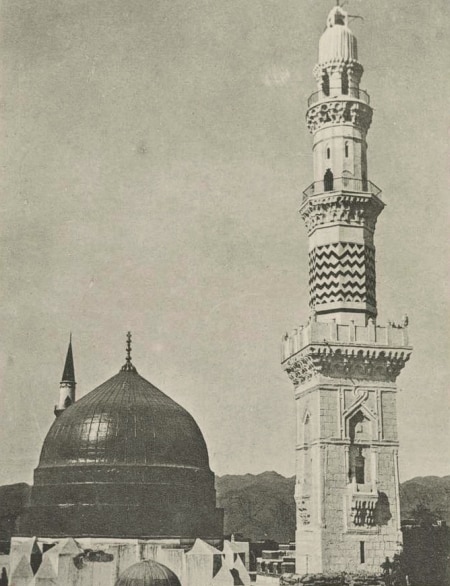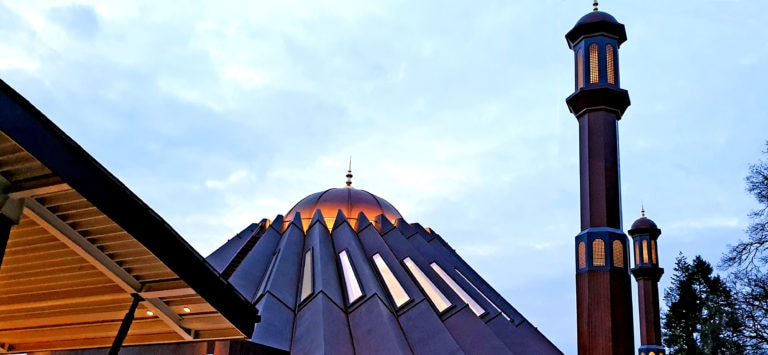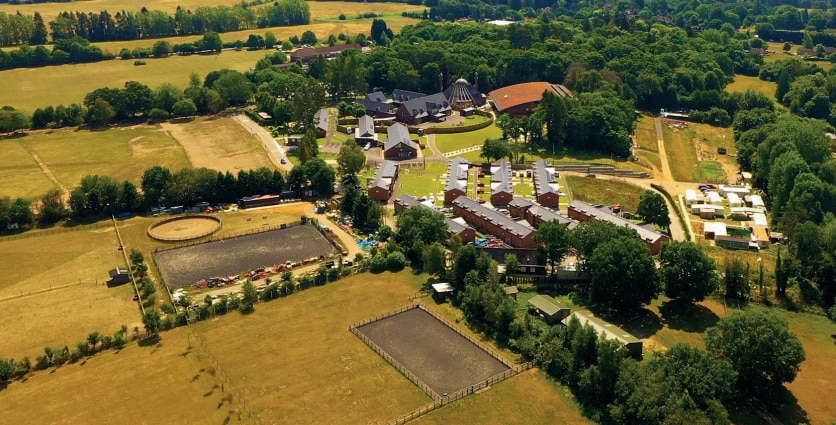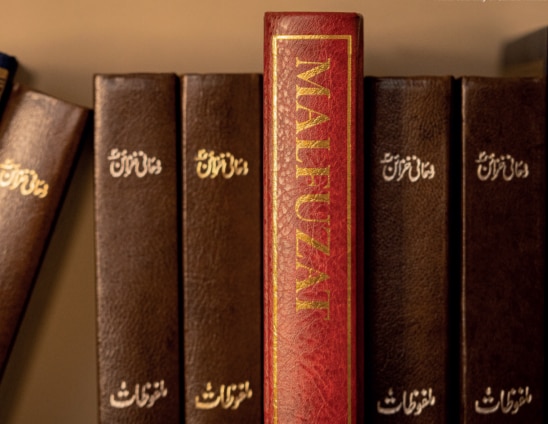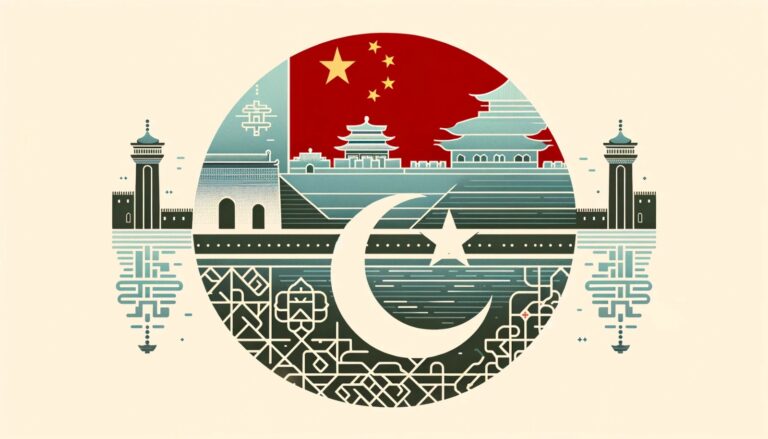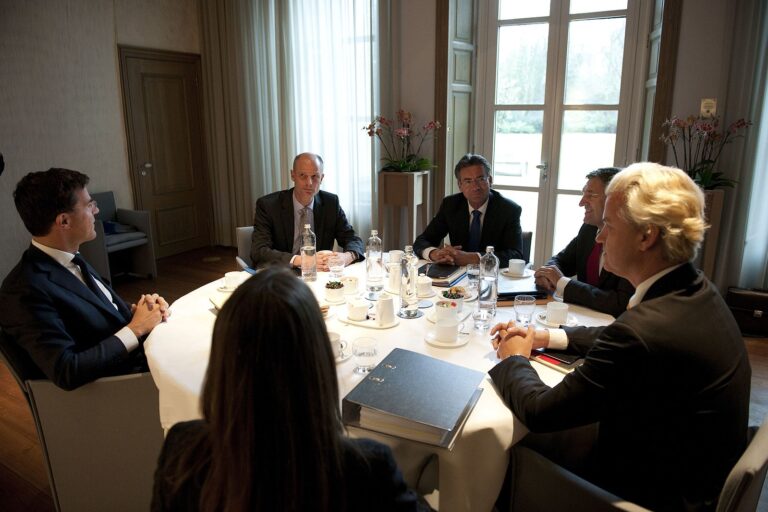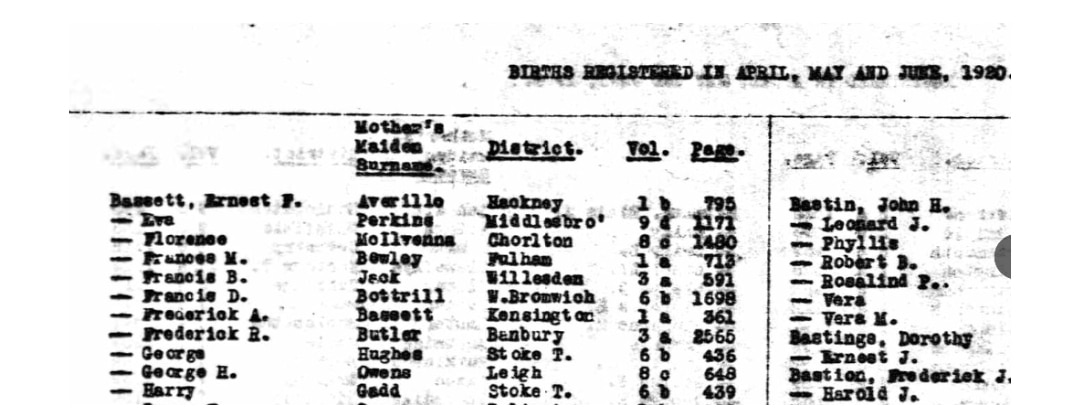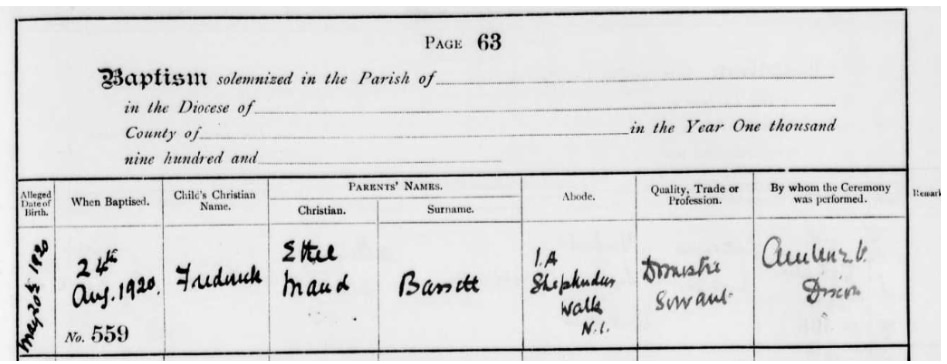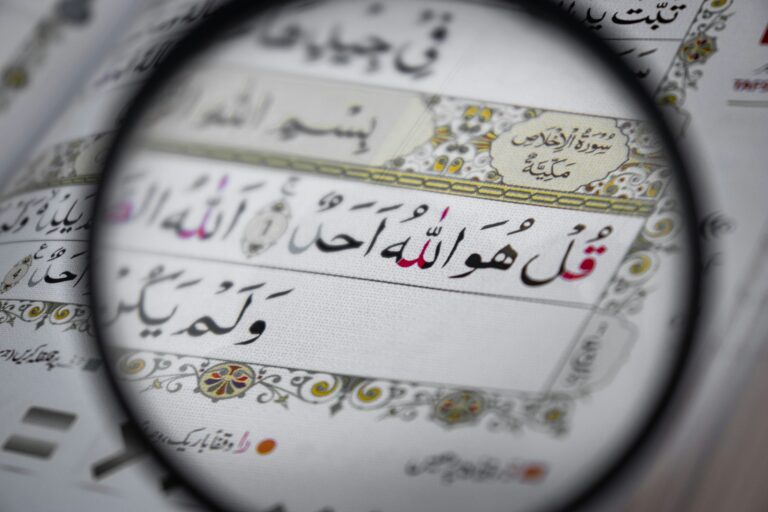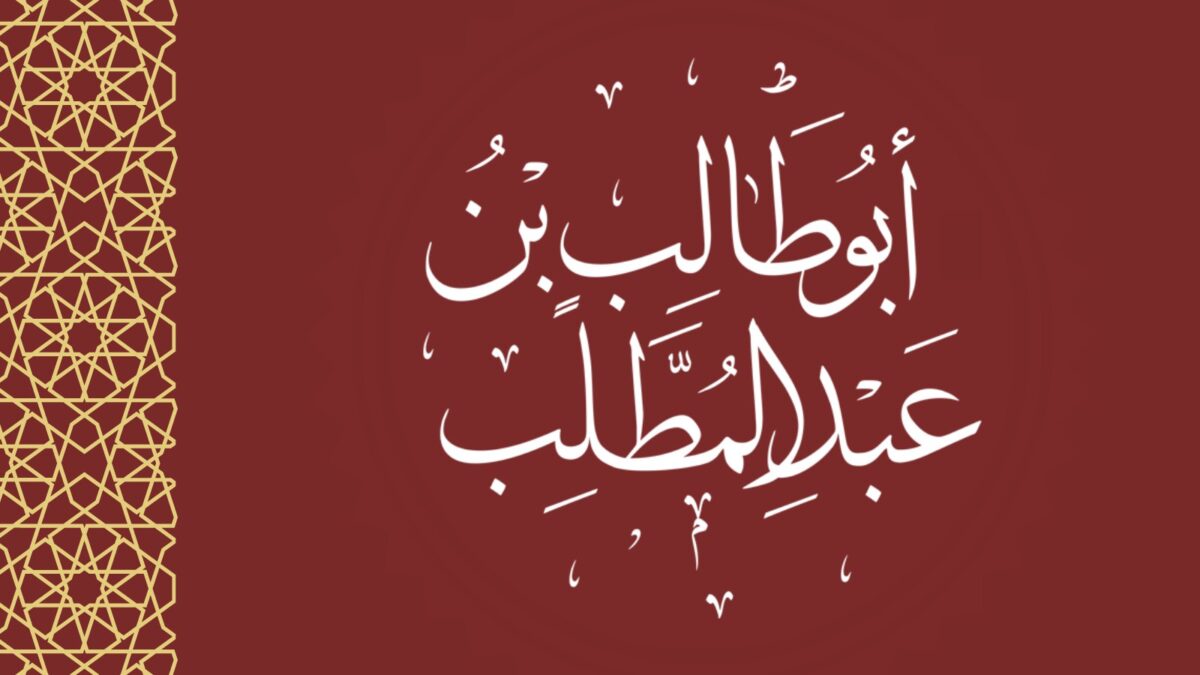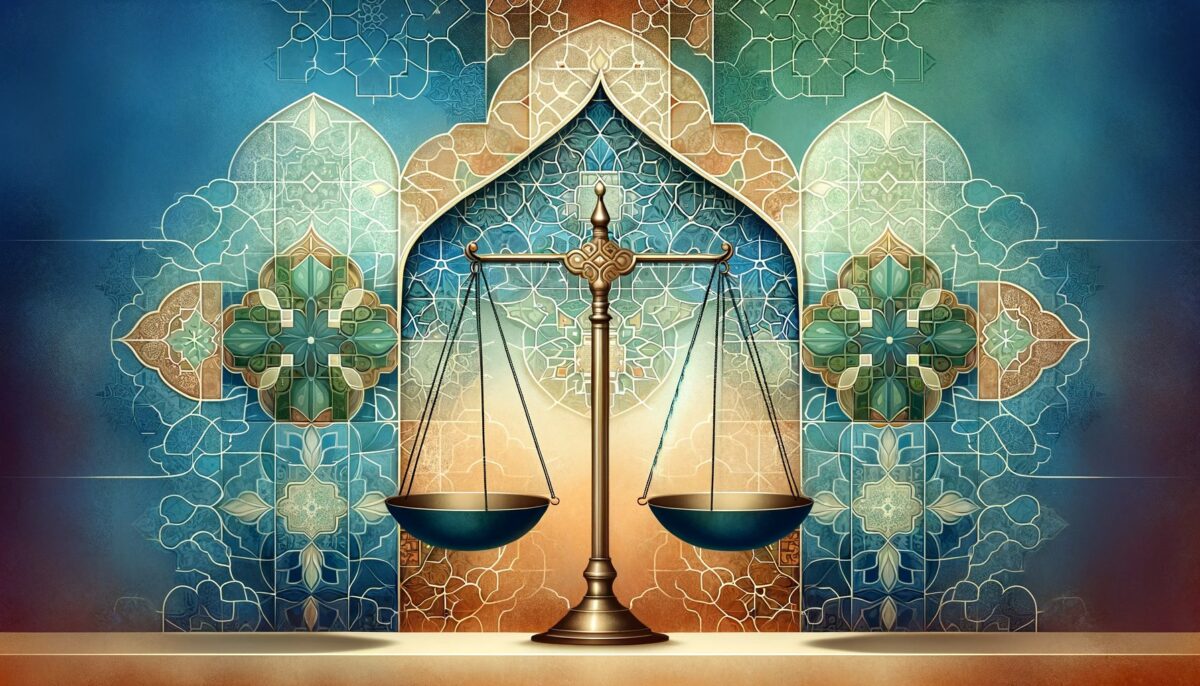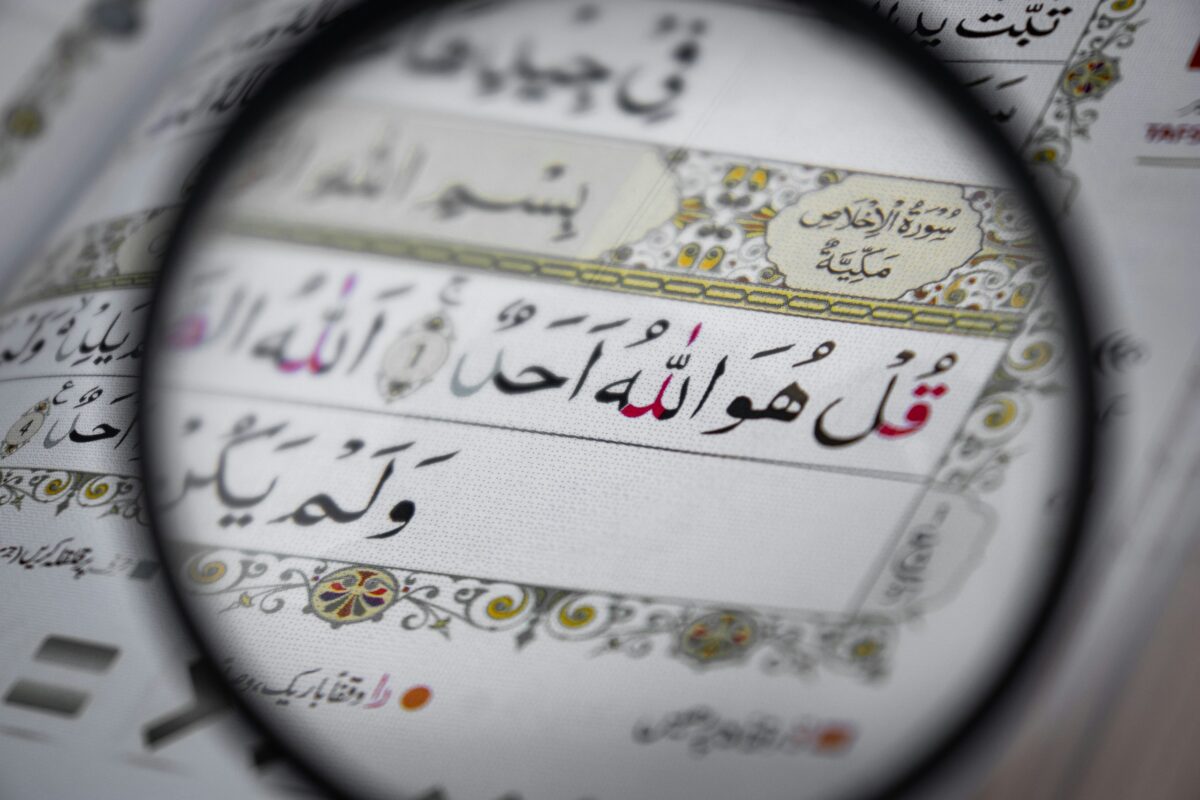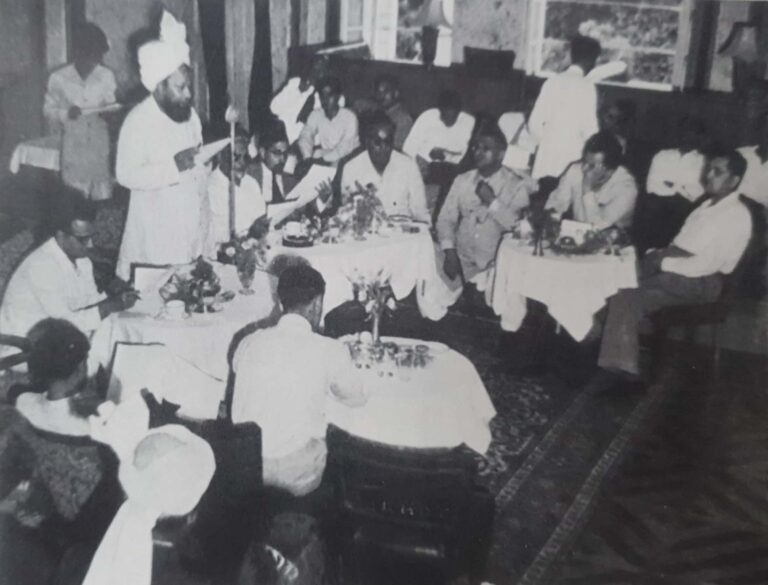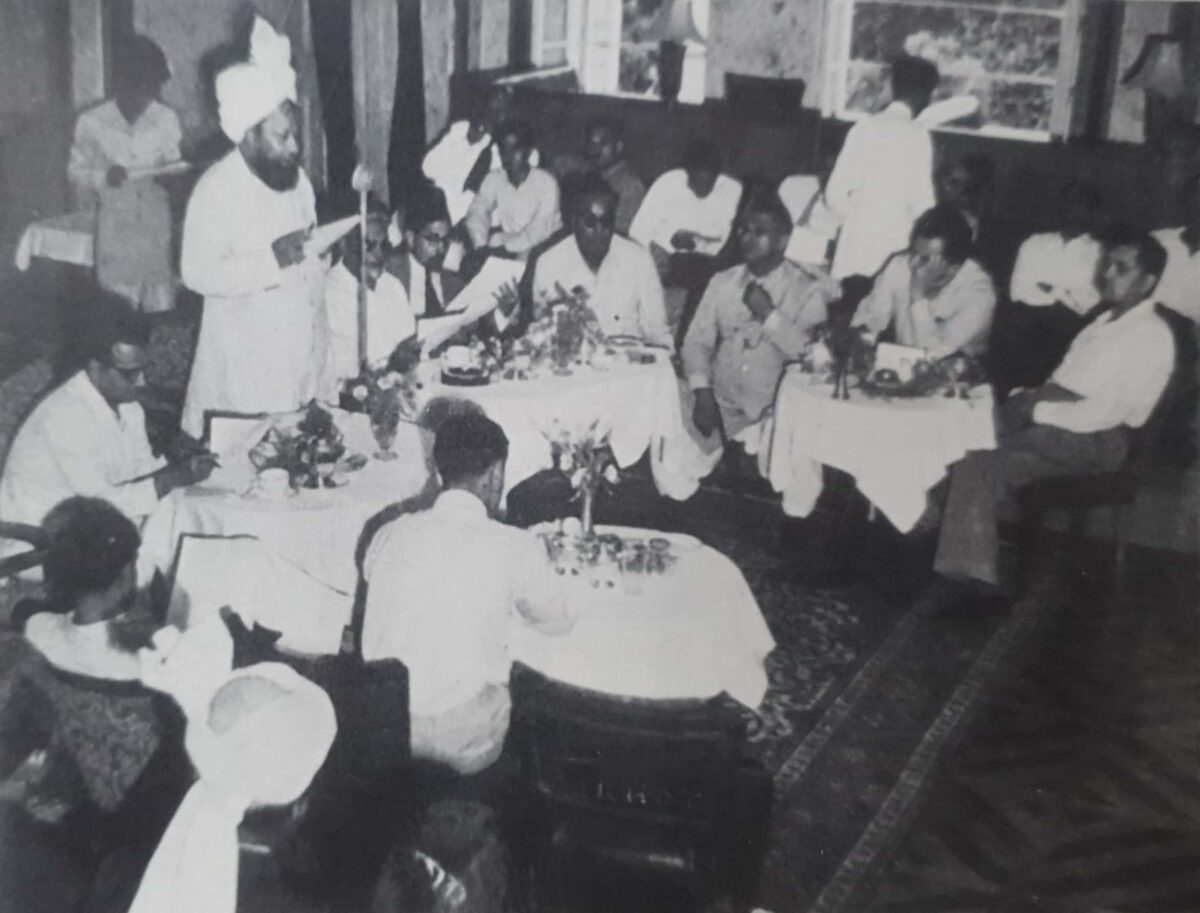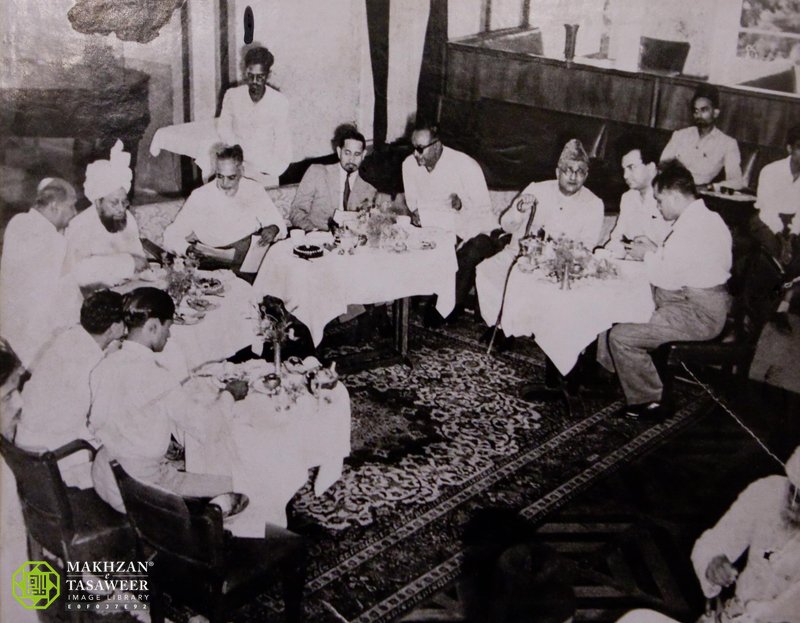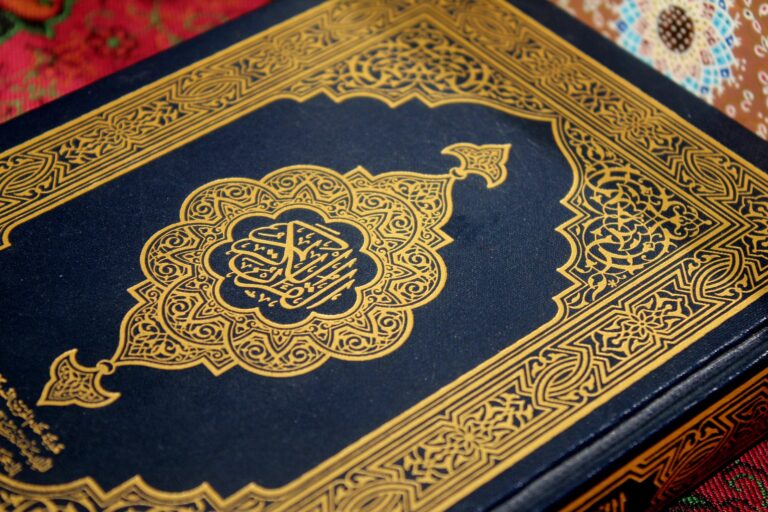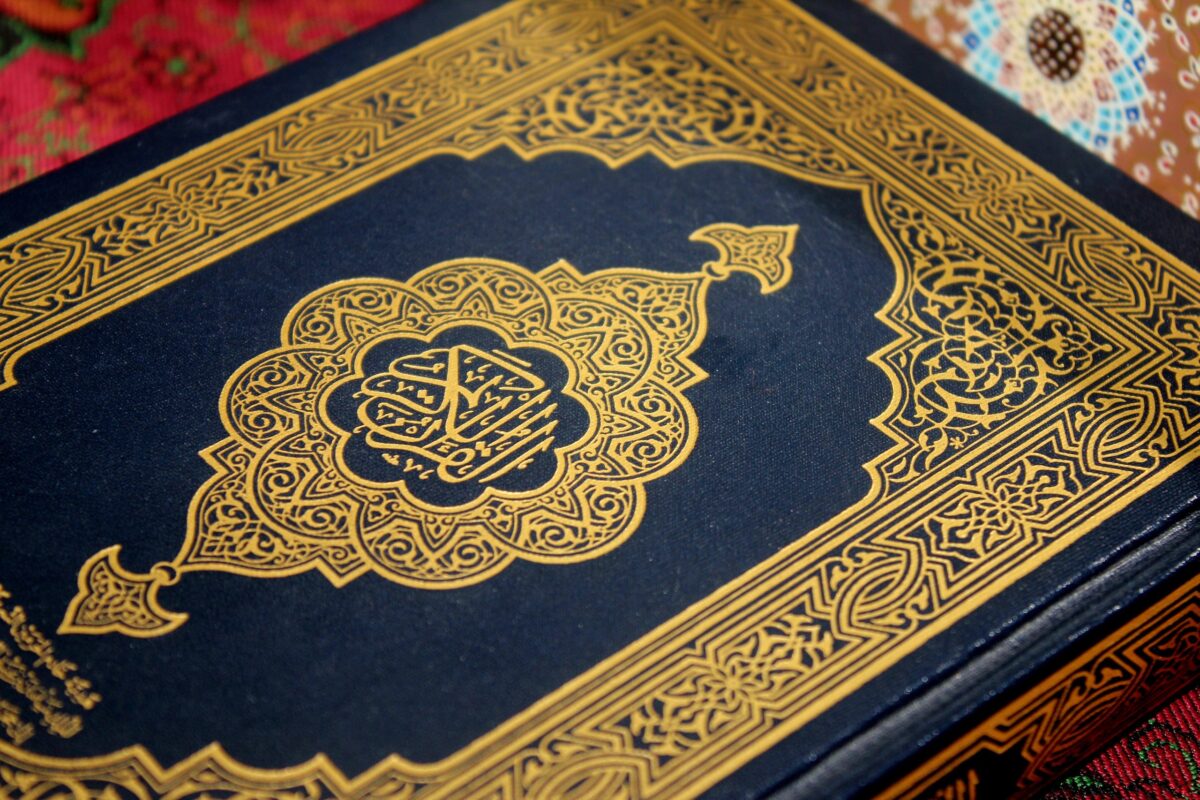Friday Sermon
10 November 2023
Muhammadsa: The Great Exemplar
After reciting the tashahud, ta‘awuz and Surah al-Fatihah, Hazrat Khalifatul Masih Vaa stated:
I have been narrating accounts from the life of the Holy Prophetsa and mentioning incidents that took place immediately after the Battle of Badr. In this respect, one of the significant incidents that took place, in the second year after Hijra, was the establishment of the graveyard in Medina, Jannat-ul-Baqi‘. The details of the establishment of Jannat-ul-Baqi‘ are as follows:
When the Holy Prophetsa settled in Medina, there were many graveyards. The Jews and the various Arab tribes had their own respective graveyards. Since Medina was divided into various areas at the time, every tribe would bury their deceased in the open fields of their respective areas. Quba had its own graveyard, which was the most well-known, although there were several other smaller graveyards there as well. The tribe of Banu Zafar had its own graveyard and the tribe of Banu Salama had its own graveyard. Other graveyards included the graveyard of Banu Sa’idah, where later the Souq al-Nabisa was established. On the land where Masjid an-Nabawi was built, there were also some graves of polytheists among the date orchards. Among all of these graveyards, Baqi‘ al-Gharqad was the oldest and most well-known. After the Holy Prophetsa selected it as the graveyard for the Muslims, it acquired a unique and distinct status, which shall always remain.
Hazrat ‘Ubaidullah bin Abi Rafi’ra relates that the Holy Prophetsa was in search of a place where only Muslims would be buried and for this purpose, he inspected various places. This honour was however destined for Baqi‘ al-Gharqad. The Holy Prophetsa said, “I have been commanded to select this place (i.e. Baqi‘ al-Gharqad).” During that time, it was also known as Baqi‘ al-Khabkhabah. There were countless Gharqad trees and shrubs. It was filled with mosquitoes and other insects and whenever mosquitoes would populate in this area due to the filth, or it being a jungle, it would seem like a cloud of smoke had covered the area. The first person to be buried there was Hazrat ‘Uthman bin Maz’unra. The Holy Prophetsa placed a stone by his side as an indication and said, “He is our predecessor.” Whenever someone passed away after him, people would ask the Holy Prophetsa where to bury them. Upon this, the Holy Prophetsa would say, “Bury him in Baqi‘, near our predecessor, ‘Uthman bin Maz’un.” In Arabic, Baqi‘ is referred to as a place filled with many trees. In any case, in Medina, this place started to be known as Baqi’ al-Gharqad, since it was filled with Gharqad trees, as I mentioned earlier. Aside from this, there were many desert shrubs as well. It is also called Jannat-ul-Baqi‘. The meaning of Jannat in Arabic is garden, or paradise. As such, it is known as Jannat-ul-Baqi‘ among most non-Arab visitors.
‘Abd-ul-Hamid Qadri Sahib has recorded these various details. Following this, he says that we should not forget that Arabs generally call their graveyards Jannat. Another name for this [graveyard] is Maqabir al-Baqi’, which was more commonly known among the Bedouins. (Abdul Hameed Qadiri, Justuju-e-Madinah [Lahore, Pakistan: Oriental Publications Lahore, 2007], p. 598)
With regards to this, Hazrat Mirza Bashir Ahmad Sahibra has mentioned in Sirat Khatamun-Nabiyyin [The Life and Character of the Seal of Prophetssa] as follows:
“To the end of this year (i.e., 2 AH), the Holy Prophetsa proposed the creation of a graveyard in Medina for his Companions which was referred to as Jannat al-Baqi‘. After its creation, the Companions were generally buried in this very graveyard. The first Companion to be buried in this graveyard was Uthmanra bin Maz‘un. Uthmanra was from among the most pioneer Muslims, and was extremely righteous and pious. He was a man of ascetic disposition. On one occasion, after becoming a Muslim, he submitted to the Holy Prophetsa, ‘If the Holy Prophetsa kindly grants permission, it is my desire to abandon the world completely and separate myself from my wife and children, so that I may devote my life wholly to the worship of Allah.’ However, the Holy Prophetsa did not permit him to do so. As a matter of fact, even with respect to such people who would not abandon the world completely, but would fast and offer Salat so often that it would affect the rights of their dependents, the Holy Prophetsa would say:
“‘You should offer the right owed to God, you should offer the rights owed to your wives and children, you should offer the rights owed to guests, and you should offer the right owed to your own soul. For all of these rights have been appointed by God, and the fulfilment of them is also a form of worship.’
“Therefore, the Holy Prophetsa did not permit ‘Uthman bin Maz‘unra to abandon the world, and whilst prohibiting celibacy and asceticism in Islam, the Holy Prophetsa established a middle course for his community, which is set between the two extremes. The Holy Prophetsa was deeply saddened by the demise of Uthman bin Maz‘unra. There is a narration that after his demise, the Holy Prophetsa kissed his forehead and at the time there were tears in the eyes of the Holy Prophetsa. After his burial, the Holy Prophetsa fixed a stone at the head of his grave to serve as a marking, and then, every so often, he would visit the Jannat al-Baqi‘ and pray for him. Uthmanra was the first Muhajir to pass away in Medina.” (Sirat Khatamun-Nabiyyin, Hazrat Mirza Bashir Ahmadra, pp. 462-463)
I shall now mention the expedition of Dhi Amr, also known as the Expedition of Banu Ghatafan. The Holy Prophetsa received news that the Banu Tha’labah and Banu Maharib branches of the Ghatafan tribe had gathered at a place called Dhi Amr. This is a village in the vicinity of Ghatafan. Their objective was to attack the neighbouring areas of the city of Medina and to get them to join them. The individual who was inciting them against the Muslims was Dau’thur bin Harith of Banu Maharib. As soon as he received this news, the Holy Prophetsa instructed the people to prepare, and thus, he departed Medina with an army of 450 companions and some horses as well. The Holy Prophetsa assigned Hazrat Uthman bin Affanra as his deputy in Medina. (‘Ali bin Burhan al-Din al-Halabi, Al-Sirah al-Halabiyyah, Vol. 2 [Beirut, Lebanon: Dar al-Kutub al-‘Ilmiyyah], p. 290; Mustafa ‘Abd al-Wahid, Subul al-Huda wa al-Rashad fi Sirat Khair al-‘Ibad, Vol. 4 [Beirut, Lebanon: Dar al-Kutub al-‘Ilmiyyah, 1993], p. 176)
The Expedition of Ghatafan took place in Rabi’ al-Awwal 3AH, and the Holy Prophetsa set forth for this expedition on 12 Rabi’ al-Awwal. The people of Medina had to bear his absence for 11 days, then on 24 Rabi’ al-Awwal, the Holy Prophetsa returned to Medina. The area where the Holy Prophetsa set up camp in order to gather intelligence about Ghatafan was a place near Ghatafan called Dhi Amr, and for this reason, the expedition is called the Expedition of Dhi Amr, and it is also referred to as the Expedition of Banu Ghatafan with reference to it being against the tribe of Ghatafan. (‘Ali bin Burhan al-Din al-Halabi, Al-Sirah al-Halabiyyah, Vol. 2 [Beirut, Lebanon: Dar al-Kutub al-‘Ilmiyyah], p. 290; Da’irah Ma’arif Sirat Muhammadsa, Vol. 6 [Lahore, Pakistan: Dar al-Ma’arif], pp. 367-368)
It is recorded in relation to the Holy Prophet’ssa setting off to combat the assembling of the idolaters that after departing from Medina, the companions met a person of Banu Tha’labah at Dhu al-Qassah. Dhu al-Qassah was situated 14 miles from Medina towards Rabazah. This person was called Jabbar. The companions captured him and enquired as to where he was heading, to which he replied, “I wish to go to Yathrib in search of some livelihood,” and so he was taken to the Holy Prophetsa. He informed the Holy Prophetsa about the situation of his people, and after the Holy Prophetsa invited him to Islam, he at once became a Muslim. When he became aware of the intentions of the Holy Prophetsa to fight against the Banu Tha’labah and Banu Maharib, he said to the Holy Prophetsa, “O Muhammadsa! They will never face you in combat. If they find out about your arrival, they will flee immediately to the mountaintops.” They of course wanted to attack the outskirts of Medina, but they would never come face-to-face with the Muslims. Jabbar then said, “I will also accompany you.” The Holy Prophetsa placed Jabbar under the supervision of Bilalra.
This person took the Muslims via another route and reached their area. When the people there saw the Muslim army approaching, they all fled to the mountains. The Holy Prophetsa advanced and reached a spring called Dhi Amr, and set up camp there. All of a sudden, heavy rain began to fall there, causing the clothes of the Holy Prophetsa and his companions to be drenched. The Holy Prophetsa placed his wet clothes to dry on a tree and lay beneath that tree. The companions were occupied in their own work. This is where an evil attempt to kill the Holy Prophetsa was made. There are details in relation to this where a person drew his sword against the Holy Prophetsa. It is said that those who hid in the mountaintops were seeing all the movements of the Holy Prophetsa up above from the mountains. When the idolaters saw the Holy Prophetsa lying down in one place all alone, they went to their chief Dau’thur, who was the most courageous of them all. The idolaters said to him, “Right now, the Holy Prophetsa is lying down all alone. It is now your duty to deal with him.”
In one narration, it is recorded that when Dau’thur saw the Holy Prophetsa lying down alone, he said, “May Allah destroy me if I do not kill Muhammad[sa] now.” In any case, he went forth with his sword drawn towards the Holy Prophetsa but stopped as he reached right where his head lay. He then addressed the Holy Prophetsa, saying, “Who will save you from my hand today (or he said now)?” The Holy Prophetsa replied in full confidence, “Allah will protect me.” Upon this, the person fell to the ground, and his sword fell from his hand. The Holy Prophetsa immediately picked up his sword and asked him, “Who will now save you from me?” In reply, Dau’thur said:
لَا أَحَدٌ، وَأَنَا أَشْهَدُ أَنْ لَّا إِلٰهَ إِلَّا اللّٰهُ وَأَنَّ مُحَمَّدًا رَسُولُ اللّٰهِ، وَاللّٰهِ لَا أُ كَثِّرُ عَلَيْكَ جَمْعًا أَبَدًا
“No one will. I bear witness that there is no god except Allah, and Muhammadsa is His Messenger. By Allah, I shall never incite people against you again.”
This was the promise he made. The Holy Prophetsa granted him his sword back. According to another narration, Da’thur turned towards the Holy Prophetsa and said, “By Allah, You are far greater than me in bestowing a favour.” The Holy Prophetsa replied:
أَنَا أَحَقُّ بِذٰلِكَ مِنْكَ
“I have a greater right to bestow a favour upon you.” Dau’thur returned to his people, but he had changed so much that he began to preach to his people.
Dau’thur has related the incident of what happened to him and how he fell. Relating this incident of his falling down, he said, “I saw a tall person there. When I was standing there with my sword drawn, I saw a very tall person come there. He pushed my chest, and I fell on my back. (He hit him with his hand, and he fell on his back.) It was then that I realised that this was no human, but an angel. It is then that I accepted that there is no god but Allah, and Muhammadsa is the Messenger of Allah.” He said, “By Allah, I will never act against him again.”
Thereafter, he began to call his people to Islam. Through him, Allah the Almighty guided many people. In any case, the Holy Prophetsa returned to Medina after this, and no battle took place. The Holy Prophetsa spent 11 days in total away from Medina, and according to one saying, he remained outside of Medina for 15 days. Abu Umar states that the Holy Prophetsa spent the entire month of Safar in Najd. In any case, there are various narrations, but in actuality, the journey was only for a few days.
Some scholars have deemed that the aforementioned incident, about the attempt on the Holy Prophet’ssa life by the sword, took place during the Battle of Dhat al-Riqa‘. In doing so, they have declared the two incidents to be one and the same, however, most researchers consider these two incidents to have occurred during different battles. The name of the individual who attacked during the Battle of Dhat al-Riqa‘ has been reported to be Ghaurath. It is said that he accepted Islam, while there are also some opinions that he did not accept Islam, albeit he did make a vow with the Holy Prophetsa to never fight against him. This is a narration from Sahih al-Bukhari. (‘Ali bin Burhan al-Din al-Halabi, Al-Sirah al-Halabiyyah, Vol. 2 [Beirut, Lebanon: Dar al-Kutub al-‘Ilmiyyah], p. 290; Mustafa ‘Abd al-Wahid, Subul al-Huda wa al-Rashad fi Sirat Khair al-‘Ibad, Vol. 4 [Beirut, Lebanon: Dar al-Kutub al-‘Ilmiyyah, 1993], p. 176; Sirat Encyclopaedia, Vol. 6, p. 71, Maktabah Dar al-Ma’arif; Sharh al-Zurqani ‘ala al-Mawahib al-Laduniyyah, Vol. 2, [Beirut, Lebanon: Dar al-Kutub al-‘Ilmiyyah, 1996], pp. 381-382; Sahih al-Bukhari, Kitab al-Maghazi, Bab ghazwat al-Riqa’, Hadith 4136)
Another incident that took place during this time period was the demise of Hazrat Ruqayyahra and the marriage of Hazrat Umm Kulthumra. The details of these incidents have been narrated by Abdullah bin Muknif bin Harithah Ansari. He narrates, “When the Holy Prophetsa departed for the Battle of Badr, he left his daughter, Hazrat Ruqayyahra, in the care of Hazrat Uthmanra. She was ill and passed away on the same day that Hazrat Zaid bin Harithahra arrived in Medina with glad tidings of the victory Allah the Almighty granted to the Holy Prophetsa at Badr. The Holy Prophetsa designated a share from the spoils of Badr for Hazrat Uthmanra, and his share was equal to the share of those who partook in the battle. After the demise of Hazrat Ruqayyahra, the Holy Prophetsa married his [other] daughter, Hazrat Umm Kulthumra, to Hazrat Uthmanra.” (Ibn Sa’d, Al-Tabaqat al-Kubra, Vol. 3, Dhikr Islam ‘Uthman bin ‘Affanra [Beirut, Lebanon: Dar al-Kutub al-‘Ilmiyyah, 1990], p. 41)
Hazrat Abu Hurairahra narrates, “The Holy Prophetsa met Hazrat Uthmanra by the mosque door and said, ‘O Uthman, this is Gabriel. He has informed me that Allah the Almighty has decreed your marriage with Umm Kulthum with the same value of dowry as Ruqayyahra and upon your kind treatment towards her.” (Sunan Ibn Majah, Iftitah al-Kitab, Fadl ‘Uthmanra, Hadith 110)
In other words, Allah the Almighty instructed that the Holy Prophetsa should also marry his other daughter to Hazrat Uthmanra with the same value of dowry given to Ruqayyah.
Hazrat A’ishahra narrates, “When the Holy Prophetsa married Umm Kulthumra to Hazrat Uthmanra, he said to Hazrat Umm Aimanra, ‘Prepare my daughter Umm Kulthum and then take her to Uthman’s home and beat the drum before her.’ She did as she was instructed. The Holy Prophetsa visited Hazrat Umm Kulthumra three days later and said to her, ‘My beloved daughter, how do you find your husband?’ Umm Kulthumra replied, ‘He is an excellent husband.’” (Muhammad al-Sallabi, Sirat Amir al-Mu’minin ‘Uthman bin ‘Affanra Shakhsiyyatuhu wa ‘Asruhu, p. 41, Ch. 1, Dhu al-Nurain ‘Uthman bin ‘Affanra…, Dar al-Ma’rifah, Beirut, 2006)
Hazrat Umm Kulthumra remained with Hazrat Uthmanra until 9 AH, after which she fell ill and passed away. The Holy Prophetsa led her funeral prayer and sat by her grave for a while.” Hazrat Anasra narrates, “I saw the Holy Prophetsa with tears in his eyes as he sat by Hazrat Umm Kulthum’sra grave.” (Muhammad al-Sallabi, Sirat Amir al-Mu’minin ‘Uthman bin ‘Affanra Shakhsiyyatuhu wa ‘Asruhu, p. 42, Al-Mabhath al-Thalith: Malazimatuhu li al-Nabisa fi al-Madinah…, Dar al-Ma’rifah, Beirut, 2006)
In a narration of Sahih al-Bukhari, this incident is recorded in the following manner. Hilal narrates that Hazrat Anas bin Malikra said, “We were attending the funeral prayers of the Holy Prophet’ssa daughter. I saw that the Holy Prophetsa was sitting by his daughter’s grave with tears flowing from his eyes.” (Sahih al-Bukhari, Kitab al-Jana’iz, Bab man Yadkhulu Qabr al-Mar’ah, Hadith 1342)
In another narration, it is recorded that upon the demise of Hazrat Umm Kulthumra, the Holy Prophetsa said, “If I had a third daughter, I would also marry her to Uthman.” (Ibn Sa’d, Al-Tabaqat al-Kubra, Vol. 3, ‘Uthman bin ‘Affanra [Beirut, Lebanon: Dar al-Kutub al-‘Ilmiyyah, 1990], p. 41)
Hazrat Ibn Abbasra narrates, “The Holy Prophetsa passed by a place and saw Hazrat Uthmanra sitting there, crying in sorrow over the demise of the Holy Prophet’ssa daughter, Hazrat Umm Kulthumra.” The narrator further says, “The Holy Prophetsa was accompanied by his two Companions, Hazrat Abu Bakrra and Hazrat Umarra. The Holy Prophetsa inquired, ‘O Uthman, why do you cry?’ Hazrat Uthmanra replied, ‘O Messengersa of Allah, I am crying on account of my relation to you as your son-in-law has now come to an end. Both of your daughters were married to me, and both have passed away. Now, I am no longer your son-in-law.’ The Holy Prophetsa said, ‘Do not cry. I swear by Him to Whom my life belongs, if I had a hundred daughters and each passed away one at a time, I would marry each and every one of them to you, one after the other, until not a single one of them remained.’” (Kanz al-‘Ummal, Vol. 13, p. 397, Kitab al-Fada’il al-Sahabah, Fada’il al-Sahabah, Fada’il Dhu al-Nurain ‘Uthman bin ‘Affanra, Hadith 36201, Dar al-Kutub al-‘Ilmiyyah, Beirut, 2004)
This was a mutual expression of love from both sides. On the one hand, Hazrat Uthmanra was saddened that his relation as a son-in-law had finished, and on the other, the Holy Prophetsa compassionately consoled him. He reassured him that he should not grieve, for he was still closely related to him.
Hazrat Mirza Bashir Ahmad Sahibra mentions this marriage in his book Life and Character of the Seal of Prophets in the following words:
“After the demise of Ruqayyahra, the daughter of the Holy Prophetsa and wife of Hazrat Uthman bin ‘Affanra, the Holy Prophetsa gave another daughter named Umm Kulthumra, who was older than Hazrat Fatimahra but younger than Ruqayyahra, to Hazrat Uthmanra in marriage. It is for this very reason that Hazrat Uthmanra is known as Dhu al-Nurain, i.e., the possessor of two lights. This was the second marriage of Umm Kulthumra, because in the beginning, her sister Ruqayyahra and her were married to the two sons of Abu Lahab, the paternal uncle of the Holy Prophetsa. However, before their Rukhsatanah could be held, this relation was severed on the basis of religious opposition. The Holy Prophetsa gave his daughter Ruqayyahra to Hazrat Uthmanra in marriage first, and then after her demise, married off Umm Kulthumra to him as well. It is unfortunate, however, that the progeny of both these daughters did not continue. Umm Kulthumra did not have any children at all, and the son of Ruqayyahra, whose name was ‘Abdullah, passed away at the age of six. The marriage of Umm Kulthumra took place in Rabi‘ al-Awwal 3 A.H.” (Sirat Khatamun-Nabiyyin, Hazrat Mirza Bashir Ahmadra, pp. 463-464)
Another event that is reported to have taken place during this period is the Battle of Buhran. Aside from being called the Battle of Buhran, it has also been referred to as the Battle of Furu and the Battle of Banu Sulaim. Buhran is a mineral mine in the Valley of Furu that belonged to the people of Hijaz. The Valley of Furu is located 96 miles from Medina. The Holy Prophetsa received news that a large number from the Banu Sulaim had gathered in Buhran. Thus, the Holy Prophetsa appointed Hazrat Abdullah bin Umm Maktumra, or according to another narration, Hazrat Umarra as his deputy in Medina and departed towards Buhran with 300 companions. The Holy Prophetsa did not initially express the reason for this expedition, however, when the Muslim army was just a night’s journey away from Buhran, a man from the Banu Sulaim met the Holy Prophetsa and informed him that the people had dispersed. The Holy Prophetsa handed over that man into the custody of a Companion and continued the journey until they reached Buhran. The Holy Prophetsa did not find anyone there because they had left in search for water. Thus, the Holy Prophetsa returned, and a battle did not occur. The Holy Prophetsa departed for this expedition from Medina on 6 Jumadi al-Ula, and after 10 night’s journey, he returned on 16 Jumadi al-Ula. Contrary to this, Ibn Ishaq says that the Holy Prophetsa set out to intercept the trade caravan of the Quraish when he arrived at Buhran, a mine of Hijaz in the Valley of Furu. The Holy Prophetsa spent the two months of Rabi’ al-Akhir and Jumadi al-Ula there, and then returned to Medina. In all this time no fighting took place. (Sharh al-Zurqani ‘ala al-Mawahib al-Laduniyyah, Vol. 2, [Beirut, Lebanon: Dar al-Kutub al-‘Ilmiyyah, 1996], 382-383; Ibn Hisham, Sirat Ibn Hisham[Beirut, Lebanon: Dar al-Kutub al-‘Ilmiyyah, 2001], 513; Sayyid Fadl al-Rahman, Farhang-e-Sirat [Karachi, Pakistan: Zawwar Academy Publications, 2003], p. 226)
Hazrat Mirza Bashir Ahmad Sahibra mentions the details of the Battle of Buhran in the following words:
“Much time had not passed since the Ghazwah of Dhi ‘Amr, that is to say, in late Rabi‘ al-Awwal 3 A.H., the Holy Prophetsa received the horrific news that the Banu Sulaim were once again regrouping in a very large number at Buhran, with the intention of launching a sudden attack upon Medina, and that a party of the Quraish was also accompanying them. With no other choice, the Holy Prophetsa set out from Medina once again with a group of Companions. However, as was their habit, these wild beasts of Arabia, who lay in ambush to strike their prey suddenly and in a state of inattention, dispersed upon receiving news of the imminent arrival of the Holy Prophetsa. After a stay of a few days, the Holy Prophetsa returned.
“The fact that the Banu Sulaim and Banu Ghatafan would gather again and again with the intention of launching a sudden attack upon Medina clearly demonstrated that these barbaric and warlike tribes of the Arabian Desert were very deadly enemies of Islam. Day and night, they would remain preoccupied in order to find some opportunity by which the Muslims would be utterly destroyed. Just attempt to visualize the vulnerable state of the Muslims at the time, as to how their days were passing in that era. On the one hand, there were the Quraish of Mecca who had become blinded due to their enmity of Islam and due to their spirit of revenge for the Battle of Badr. Clinging to the drapes of the Ka‘bah, they took vows that they would not rest until the Muslims had been annihilated. On the other hand were these blood-thirsty wild beasts of the Arabian Desert, who were restless to drink the blood of the Muslims due to their being incited by the Quraish and their own animosity towards Islam. As such, take note of how many times within the course of a few months after Badr, the Holy Prophetsa was compelled to travel personally in order to safeguard himself from the deadly motives of the barbaric tribes of Arabia. As Sir William Muir has described, these were days of scorching heat as well, and not to mention, this heat was of the Arabian desert. If it were not for the special succour of God, and if the vigilance of the Holy Prophetsa had not kept the Muslims constantly watchful and alert, and if the Holy Prophetsa had not employed strategies to scatter the force of the enemy prior to their launching a sudden attack at night, the Muslims would have surely been destroyed and ruined in those days; and these were only external threats. As far as internal threats were concerned, they were no less either. Even in Medina itself, there existed a group known as the hypocrites, who lived among the Muslims as their own, and it would definitely be no exaggeration to refer to them as a snake in the grass. In addition to them were the treacherous and habitual conspirators in the form of the Jewish people, whose enmity had reached the furthest limits in its depth and breadth. Goodness Gracious! What a time of adversity this was for the Muslims!! Let us hear it in their own words. Ubayy bin Ka‘b, a renowned Companion relates:
“‘In that era, the state of the Companions was such that they would not even put off their arms at night and during the day they would walk around armed in case of a sudden attack. They would say to each other let us see if we live till such a time when we might be able to sleep in peace and security at night without any fear except the fear of God.’
“What difficulty and helplessness, and what a longing for a life of peace and security is hidden in these words. Every just individual can measure this for himself.” (Sirat Khatamun-Nabiyyin, Hazrat Mirza Bashir Ahmadra, pp. 464-465)
These circumstances are present in some places even today, especially in Palestine at present.
There was also the expedition of Zaid bin Harithah, the details of which are as follows. The defeat of the Banu Sulaim, the exile of the Banu Ghatafan, the fleeing of Abu Sufyan during the Battle of Sawiq, and the defeat of the Banu Tha’labah and Banu Maharib during the Battle of Banu Ghatafan were all testaments to the growing military competence of Medina. Above all, the victory of the believers and the humiliating defeat of the idolaters in the Battle of Badr caused the enemies of Islam great economic challenges because the main [trading] route from Mecca to Syria passed through the west of Medina along the Red Sea. The Muslims tried to intercept Abu Sufyan’s trade caravan along this very route. The tribes in Medina’s nearby vicinity had also formed alliances with the Holy Prophetsa. For these reasons, the idolaters of Mecca were not prepared to use this route for trade. This obstacle that the Muslims had placed before the Meccans’ economic growth was a cause of great concern for them. They abandoned the main route to Syria and searched for an alternative route. One day, Safwan bin Umayyah addressed the disbelievers and said, “Muhammad[sa] and his Companions have made it difficult for us to live. They have prevented us from going to our central location for trade. I do not understand what we should do. [The Muslims] have not even indicated any intention of clearing from the coastal area. Most of the tribes living by the coast have also formed treaties with them and formed pacts with them. How will we travel, and what will we do? If we remain here in Mecca, we will consume our resources and all that we possess. After this, we will have nothing to live on. These were the goods we would take in the summer to Syria, and in the winter to Abyssinia for trade. What will happen now?” Everyone became worried upon hearing Safwan bin Umayyah’s words. Aswad bin Muttalib suggested that instead of taking the route by the coastline, they could go to Syria by travelling through Iraq. Safwan replied that he had no knowledge of such a route. Abu Zam’ah then said, “I will tell you about a guide who is well-acquainted with this route. The guide is Furat bin Hayan Ijli. He frequently uses this route and is well-acquainted with the journey.” Safwan swore by Allah and said, “Outstanding! This is exactly what I desired.” Furat was summoned. When he arrived, Safwan said, “I would like to take a trade caravan to Syria. Muhammad [sa] has caused us great worry because our trade caravans pass by them very closely. I wish to go to Syria through Iraq.” Furat replied, “I will guide you on a route through Iraq which the Companions of Muhammad[sa] will never discover. This is a desolate and deserted route.” Safwan said, “This is what I prefer. The fact that it is desolate is not of great concern because it is winter and we will not require as much water on our journey. We can endure this much.” Nonetheless, they commenced their preparations for the journey. Following this, Safwan bin Umayyah informed everyone about the preparations of the caravan and took his belongings. He also took utensils made of silver, silver nuggets and other goods along with him. Abu Zam’ah also entrusted Safwan with 300 Mithqals of gold and also some silver nuggets so that he could make purchases for him. One Mithqal of gold is approximately four and a half grams, or exactly 4.37 grams. Nevertheless, this was a large sum. According to another narration, Safwan set out with goods comprising silver utensils and silver nuggets equivalent to 30,000 dirhams. Abu Sufyan bin Harb also took a large amount of silver with him, and others from among the Quraish also gave their wealth to the members of the caravan for their purchases. Apart from Safwan and Abu Sufyan, many others such as Abdullah bin Abi Rabi’ah and Huwaitib bin Abd al-Uzzah joined the trade caravan. Thus, under the direction of Furat bin Hayan, the caravan of the Quraish departed for trade towards Syria on a route through Iraq.
There are some details with regards to the date of this expedition and the names it is known by. It is mentioned that this expedition took place in Jamada al-Ukhra 3 AH This expedition is also known as “Sariyyah Qardah”. Qardah was a water [well] found in the Najd area. The Quraish were very careful with regard to the route they took, as mentioned earlier. They tried their utmost for this news not to spread to Medina, otherwise it would have been impossible to use this route as well, however, the Will of Allah had decreed for something else and this news could not be kept a secret by the people of Mecca. Nu’aim bin Mas’ud Ashjai learnt of this plan. It was around the same time that he had to come to Medina to see to a particular task. At the time he was irreligious and a polytheist. In Medina, he stayed with one of the chieftains of the Banu Nadir, Kinanah bin Abi Huqaiq. He gave him alcohol to drink. A companion by the name Salit bin Nu’man bin Aslam frequently visited the Banu Nadir tribe. Salit reached the gathering in which Nu’aim and Kinanah bin Abi Huqaiq were seated. Nu’aim was completely drunk and owing to his intoxication, he was unable to stop himself from disclosing the plan. He told them everything about the plan of the trade route which would pass through Iraq under the supervision of Safwan bin Umayyah. Upon hearing this, Salit bin Nu’man left and informed the Holy Prophetsa about the plan. As soon as the Holy Prophetsa learnt of this, he immediately made preparations. He dispatched a contingent of 100 cavaliers under the command of Hazrat Zaid bin Harithahra. This was the first time Hazrat Zaid bin Harithahra was appointed as the commander-in-chief of the Muslim army. He succeeded in his expedition.
In one narration, it is mentioned that the Holy Prophetsa sent Hazrat Zaid bin Harithahra with 100 cavaliers. They went and intercepted the trade caravan. The leaders of the convoy ran and took shelter in the jungle. The companions took one or two men as prisoners and brought the spoils back to the Holy Prophetsa. The Holy Prophetsa split it into five parts, and one Khumus [one-fifth of the spoils of war reserved for Allah and His Messengersa] was equivalent to 20,000 dirhams. The Holy Prophetsa distributed the remaining wealth amongst the people who took part in the expedition. (Da’irah Ma’arif Sirat Muhammadsa, Vol. 6 [Lahore, Pakistan: Dar al-Ma’arif], pp. 395-398; Al-Waqidi, Kitab al-Tarikh wa al-Maghazi, Vol. 1 [Beirut, Lebanon: ‘Alam al-Kutub, 1984], 198; Sayyid Fadl al-Rahman, Farhang-e-Sirat [Karachi, Pakistan: Zawwar Academy Publications, 2003], p. 233)
In another narration, it is mentioned that Hazrat Zaidra covered the distance swiftly and the caravan of the Quraish were completely heedless of them. They were about to stop at a spring named Qardah when the Muslim army reached them. They launched an attack all of a sudden and overpowered them. Safwan bin Umayyah and the other people with him had no option but to flee. The Muslims captured Furat bin Hayan, the guide of the caravan, along with two other men. They acquired large quantities of utensils and silver which was worth approximately 100,000 dirhams. The Holy Prophetsa took out Khumus and then distributed the remaining spoils between the army. The guide of the Quraish, Furat bin Hayan, accepted Islam at the hands of the Holy Prophetsa. (Al-Rahiq al-Makhtum [translated], p. 337, Maktabah Salafiyyah)
The remaining details of these accounts will be mentioned in the future, insha-Allah.
The reason for stopping these caravans was that they would use these trading goods to wage war against the Muslims. It is similar to the sanctions that are levied today. However, they [worldly powers] do so to achieve their vested interests and in fact, at times they are completely wrong. For example, the USA has imposed sanctions on Uganda because their Parliament passed a law against LGBT. Although they do not mention the reason but this is the true reality. This is the condition of these people, how then can they ever raise any allegations against Islam? Nonetheless, I will mention these matters in the future, God willing.
I would like to remind you once again to continue praying for the people of Palestine who are being oppressed.
Now, at least some non-Muslims and certain politicians, though timidly, have started speaking out against this injustice. Even some Jewish people are separating themselves from these actions and have called upon the Israeli government saying that they are defaming them. Hence, some voices here and there are being raised by even the non-Muslims.
Now it is being said that there will be a daily ‘pause’ in the fighting for four hours in order for aid to reach the people of Palestine. Allah the Almighty knows best the degree to which this will be implemented.
And Allah knows how much injustice and bombardment will take place against the Palestinians for the remaining 20 hours.
Majority of the major governments and politicians are not giving any importance to the lives of Palestinians. They have their own interests. However, these people should remember that Allah the Almighty gives respite only for a certain time. Furthermore, this is not the only life to be lived, there is also a hereafter.
They think that if they attain all the benefits of this world, they will have achieved everything. They can be seized in this world as well and will be seized in the hereafter as well.
In any case we must focus on prayers. May Allah the Almighty help the Palestinians, who are being oppressed and save them from these injustices.
I will also lead some funeral prayers in absentia after the prayers. The first funeral prayer is for Mansura Basma Sahiba, wife of Hameed-ul-Rahman Khan Sahib. She passed away recently:
اِنَّا لِلّٰہِ وَاِنَّاۤ اِلَيۡہِ رٰجِعُوۡنَ
[Surely, to Allah we belong and to Him shall we return.]
She was the paternal granddaughter of Nawab Abdullah Khan Sahib and Hazrat Sahibzadi Amatul Hafeez Begum Sahibara. The deceased was the maternal granddaughter of Hazrat Sahibazada Mirza Sharif Ahmad Sahibra and Bu Zainab Begum Sahiba. She was the daughter of Mia Abbas Khan Sahib and Amatul Bari Begum Sahiba. By the grace of Allah, she was a musia and a very pious lady.
Whilst announcing her nikah, Hazrat Khalifatul Masih IIIrh delivered a sermon which contained various pieces of advice and so I will read a part of that sermon. Hazrat Khalifatul Masih IIIrh stated:
“With this nikah, certain responsibilities will be placed on both the girl and boy which they previously did not have. Firstly, there are responsibilities which they have towards each other; the husband has certain responsibilities towards his wife and, likewise, the wife has certain responsibilities towards her husband. Secondly, there are certain other responsibilities which they have to fulfil together which are in relation to their children. With regards to the responsibilities related to the children, there are certain responsibilities which are divided between the two. For example, the mother provides milk for the child; however, the father cannot do this. The father, however, looks after the child whilst outdoors so that the child does not pick up any immoral habits. The mother’s responsibilities are primarily related to the affairs within the home. In any case, if both parents fulfil their responsibilities, then our children can be safeguarded from many ills.”
Hazrat Khalifatul Masih IIIrh further states:
“The verses [of the Holy Quran] which we recite on this occasion draw our attention towards these new set of responsibilities. Firstly, Allah the Almighty states:
يَـٰٓأَيُّهَا ٱلنَّاسُ ٱتَّقُواْ رَبَّكُمُ
“‘O ye people! fear your Lord.’ [4:2]
“This verse mentions to fear God and although [the Quran] speaks of Taqwa [fear of God] in various contexts; however, in this particular verse of the Holy Quran, which is recited on the occasion of the nikah, it speaks about fearing the Lord. This means that just as Allah the Almighty is the Provider and gradually nurtures everything, including them, they too will now be given a new set of responsibilities of providing and nurturing which can only be fulfilled if they truly fear their Lord, Who is Allah. Secondly, this bond is very fragile. Many misunderstandings can develop due to negligence. Therefore, in order to be safeguarded from this, we have been instructed:
قُوۡلُوۡا قَوۡلًا سَدِيۡدًا
“‘And say the right word.’ [33:71]
“This means that it is not enough to just speak the truth, but to speak in a manner which is straightforward and unambiguous. If one adopts this habit then this will remove any misunderstandings or conflicts.
“Thirdly, it states:
وَلۡتَنظُرۡ نَفۡسٞ مَّا قَدَّمَتۡ لِغَدٖ
“[And let every soul look to what it sends forth for the morrow. (59:19)]
“This means that their elders provided them with an upbringing for their future and now they too have to provide their children with a proper upbringing whilst keep their future in mind. The future of each generation, which is being mentioned in relation to parents providing an upbringing for their children, is independent and different. This is not relating to just one single future. This is because the world we live in and the society around us is constantly evolving. The current era has completely changed. The signs of the great revolution which we were always given glad tidings of can now be seen on the horizon. Thus, the responsibilities of a father today in this era are different to the ones that we had. In fact, they have to fulfil their responsibilities towards their children with much greater care and with a much wider scope, so that the future generations can be ready to shoulder the great weight of the responsibilities that are going to be placed on the Jamaat which relate to the training of the entire world. May Allah the Almighty enable us to understand this and act upon it.”
Hazrat Khalifatul Masih IIIrh then stated:
“I am standing here to announce the nikah of a young girl, who is the paternal granddaughter of our paternal uncle, Nawab Abdullah Khan Sahib and our paternal aunt, Amatul Hafeez Begum Sahiba. Through this marriage, the fourth generation of the Promised Messiahas will begin. She is the maternal granddaughter of Hazrat Mirza Sharif Ahmad Sahibra and so she is related to the Promised Messiahas in two ways. Hence, the responsibilities are two-fold and if the responsibilities are two-fold then the warning is also two-fold just as the glad-tidings are two-fold for us.”
Hazrat Khalifatul Masih IIIrh then mentioned to the elders as well as the children of the family of the Promised Messiahas that they should understand their responsibilities. If they fail to fulfil their two-fold responsibilities then they will have to face a two-fold admonishment as well. May Allah the Almighty enable the elders and children of the family [of the Promised Messiahas] to understand this.
Hazrat Khalifatul Masih IIIrh then said, “Whenever I announce a Nikah in which the boy and the girl are related to the Promised Messiahas then I also become concerned and become more focused on praying that Allah the Almighty enables them to recognise this status; because when it comes to being helpers [of the Promised Messiahas] they are different from others and therefore they should live their lives in this world as even greater servants [of faith].” (Khutbat-e-Nasir, Vol. 10, pp. 710-713, Khutbah Nikah October 1981)
In any case, these were his words of guidance and so I have mentioned them. Regarding her personal life, Basmah Mansura Sahiba’s daughter Rabia writes, “She introduced us to Allah the Almighty when we were young. She would stress that we pray for our good fortune. She would often say, ‘pray that Allah the Almighty causes you to be in the company of good people.’ We did not understand what this prayer meant when we were little, but came to understand it as we grew older.”
She further says, “My mother was very loving towards people. She would sacrifice her own sentiments in order to take care of others (this was indeed true). It may have appeared to people as if she spent on herself, but this was not the case, rather she herself would sacrifice and instead took care of others. For example, she would come to London for the Jalsa, and she would take gifts back for the poor and would not get anything for herself. She also took a young girl into her care and raised her, tended to her good moral training and then also had her married. In addition to her there are many girls who she helped get married. People would often visit her home. She would also send food to the neighbours. It was as if a sort of communal kitchen had been opened. This was to the extent that the man who swept the streets outside would come to her when it was time to eat and would have a meal. She had also set a stipend for many people. If ever she was advised to save something for herself she would say, ‘I have never thought about tomorrow. Allah the Almighty is the Master of my financial needs.’ She had a great deal of honour and respect for life-devotees and she would take care of her relatives who were life-devotees and would keep in touch with them as well.” She says, “She would also say to us that that life-devotees make sacrifices and so they should be taken care of. She did justice to all of her relations in an excellent manner. She would always say that she never thought about how others have treated her. If ever she made a mistake or if ever she did wrong to someone she would always be the first to seek an apology. If ever she scolded a worker she would seek apology from them too and then she would give them a gift.”
Her son-in-law, Mirza Taqiuddin says, “She did Wasiyyat at a very young age.”
I also checked the Wasiyyat form and I was astonished to see that she had done Wasiyyat around the age of 14. He says, “She recounted a dream she had when she was a child; she saw in a dream that she was firmly holding on to Allah’s foot and crying profusely. She would said that when she woke up she was in fact crying. She would say, ‘Till now, Allah the Almighty has taken care of everything for me.’”
One of her acquaintances here, Ruhi Shah Sahiba says, “If she befriended someone then she honoured that friendship. She was a very grateful person. She was content with the will of Allah the Almighty and was always grateful to Him for His blessings. She was kind to others, and then she would express a great deal of gratitude, to the extent that the other person would become embarrassed.”
Her sister-in-law Tahira Farooq Sahiba says, “Rather than considering me a sister-in-law she treated me like a friend and sister. She loved selflessly and was a stand up individual. She knew how to honour her relations. She preferred for others exactly that which she preferred for herself and she never harboured any negative feelings in her heart. She was clear and straightforward in what she said. She was regular in offering prayers, keeping fasts, reciting the Holy Quran and she was firmly and deeply attached with Khilafat. She would happily take on any Jamaat work that was entrusted to her.”
May Allah the Almighty grant her His forgiveness and mercy and enable her children to carry on the legacy of her virtues. May He grant her husband and children patience and steadfastness.
The second funeral is of Chaudhary Rasheed Ahmad Sahib, former deputy registrar at the University of Agriculture in Faisalabad. He had currently been residing in the United States. He also passed away recently.
اِنَّا لِلّٰہِ وَاِنَّاۤ اِلَيۡہِ رٰجِعُوۡنَ
[Surely, to Allah we belong and to Him shall we return.]
By the grace of Allah the Almighty he was also a Musi.
His son, Rafiq Tahir Sahib is serving the Jamaat in Los Angeles. He says that Ahmadiyyat first came into their family through the deceased’s older brother Chaudhary Barkat Ali Sahib, after which his father and the rest of his family had the honour of pledging allegiance. During the disturbances of 1974, his home which was within the university compound among the university quarters, was attacked by a mob and also attacked him and looted his home, setting fire to everything he had. In any case he left from there and returned to the university two to three months later when the conditions improved. The Vice-Chancellor said that the owner of the Crescent Mill said, “I wish to cover your losses. Tell me the extent of the damage.” Chaudhary Rasheed Sahib raised his finger towards the sky and said, “Absolutely not, I will not take help from anyone. I am bearing this loss in the way of Allah the Almighty. I suffered this loss for His sake and He Himself will cover the losses.” Allah the Almighty then bestowed such blessings upon him that within a short span of time, he was able to make up for the loss he endured. He had a relationship of great love and obedience with Khilafat. He strove to fulfil instructions to the letter. He was so trustworthy that he was a member of the university grant commission (this is a great honour). Once, there was a meeting and he had been given money to cover the expense of the train ticket to attend the meeting. On the way back, some of his family members said that they wished to accompany him, so he changed his ticket to second class in order to sit with his relatives and returned the remaining amount to the government. Once, he went to the university grant commission chairman’s office and he sent his card in order to meet him. The director came out and said to someone who was sitting outside, “This is the person whose trustworthiness I was telling you about how honest he is.” He immediately took this opportunity to introduce the Jamaat, saying that he was an Ahmadi and his trustworthiness was owing to him being an Ahmadi. Hence, this is a lesson for Ahmadis, that they should always fulfil their duties faithfully and they should never get caught up in any sort of financial greed. He was at the forefront of offering financial contributions and making financial sacrifices. Aside from his parents and siblings, he would regularly make contributions for Tahrik-e-Jadid and Waqf-e-Jadid on behalf of the Holy Prophetsa and the Promised Messiahas. He was a very loving person. He treated all the students at the university like his children and brothers. He says that they would all gather and offer one prayer [in a day] at his home, especially the Maghrib prayer. He would always meet others with a smile on his face. He was a very content person. May Allah the Almighty grant him His forgiveness and mercy and enable his children to carry on the legacy of his virtues.
(Official Urdu transcript published in the Daily Al Fazl International, 1 December 2023, pp. 2-7. Translated by The Review of Religions.)


